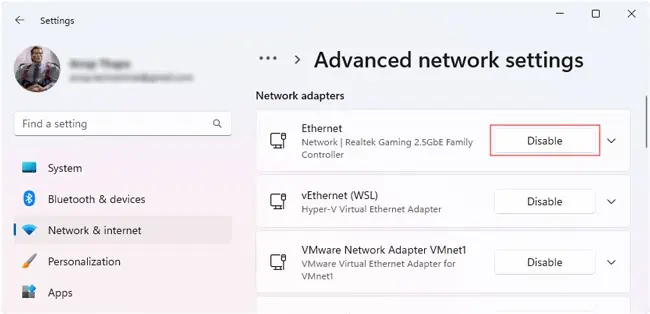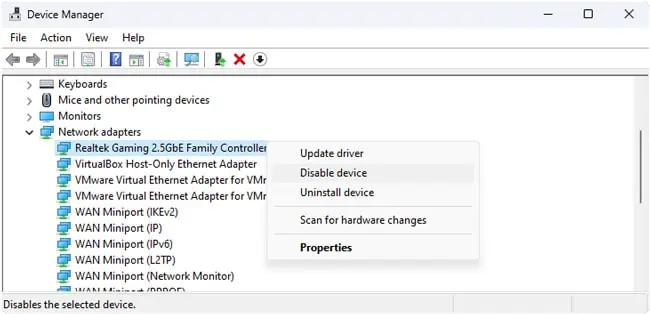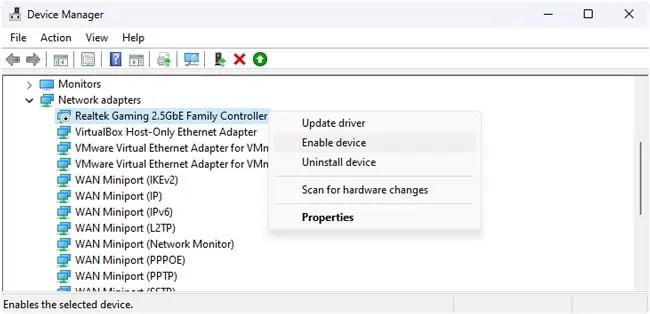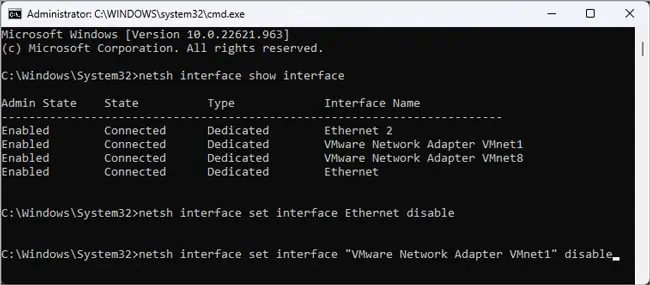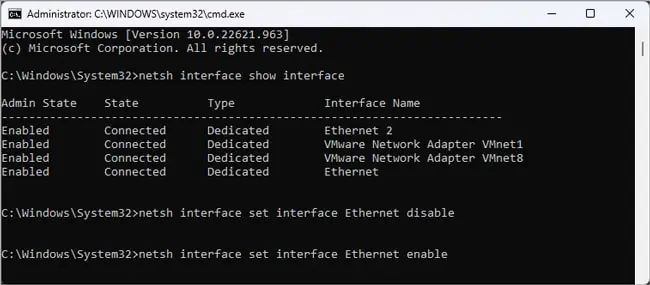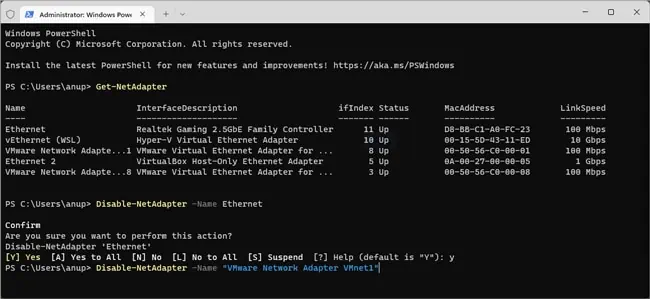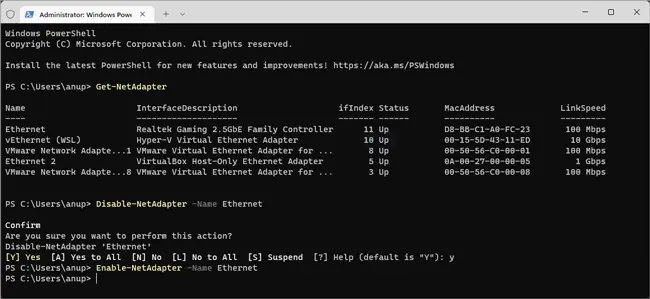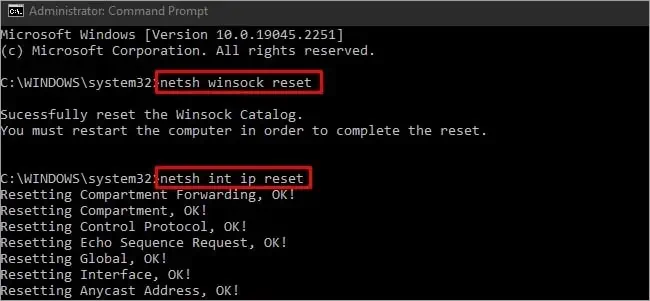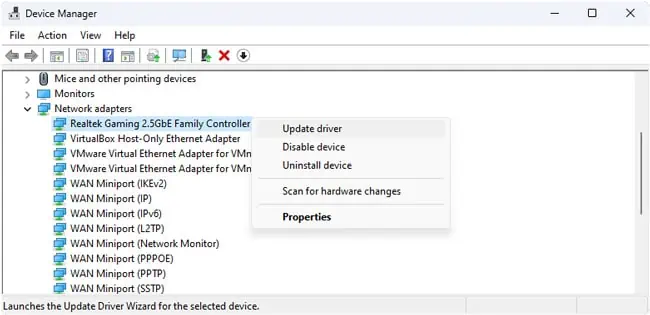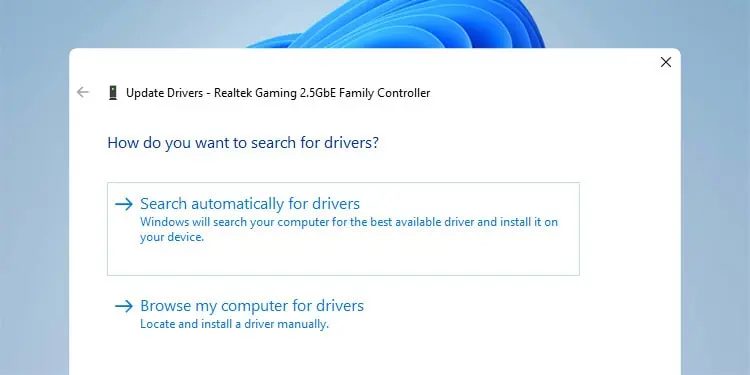Resetting the Ethernet adapter usually involves disabling and re-enabling it. Disabling the adapter unloads the device driver and sets the interface state as Disconnected. It also leads to other device-specific procedures like clearing the ARP table entries.
This is why a basic adapter reset fixes so many networking errors in Windows. If simply restarting the adapter doesn’t help, you may also try a complete reset by resetting and reinstalling the networking components.
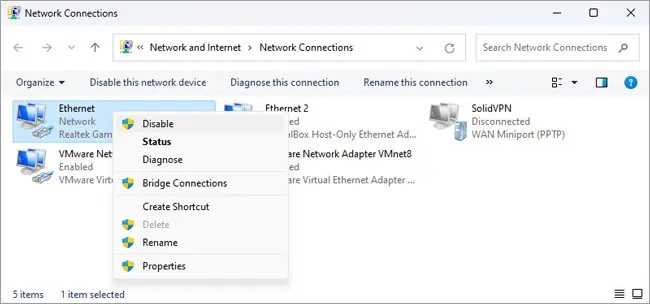
Restart Ethernet Adapter
Do note that your account must be a member of theNetwork Configuration Operatorsor Administrators groupto reset the Ethernet adapter.
PowerShell
Reset/Reinstall Networking Components
When a basic reset isn’t enough, you’ll need to resort to a thorough reset to fix any problems with your Ethernet adapter.
Step 1: Reset Network Components
To start, we’ll reset the Winsock catalog to a clean state. Then, we’ll reset the TCP/IP parameters, which does the same thing as removing and reinstalling TCP/IP would.
Step 2: Fix Ethernet Driver
Acorrupted Ethernet driverfalls among the most common reasons for networking problems. Sometimes, simply updating to the latest driver will fix the problem. In other cases, the latest driver might be the problem and you’ll need to revert to an older stable version.
As stated,updating to the latest driverwill generally fix networking problems. But sometimes, you may need to try out different driver versions until you find a compatible one.
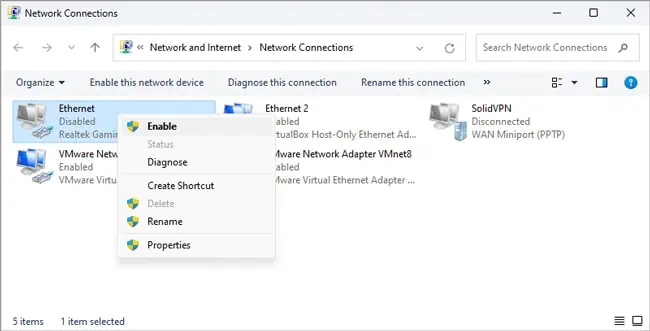
What If Resetting Doesn’t Work?
In rare cases, the adapter keeps getting disabled automatically, or users are unable to turn it back on. If this is happening to you, here’s what we recommend:
Aside from this, we’ve mostly seen this problem occur after updating or upgrading Windows. As such,updating to a newer patched version, or reverting to an older stable one is the best course of action here. Installing a compatible driver directly from your device manufacturer, as detailed in the previous section, can also help.
